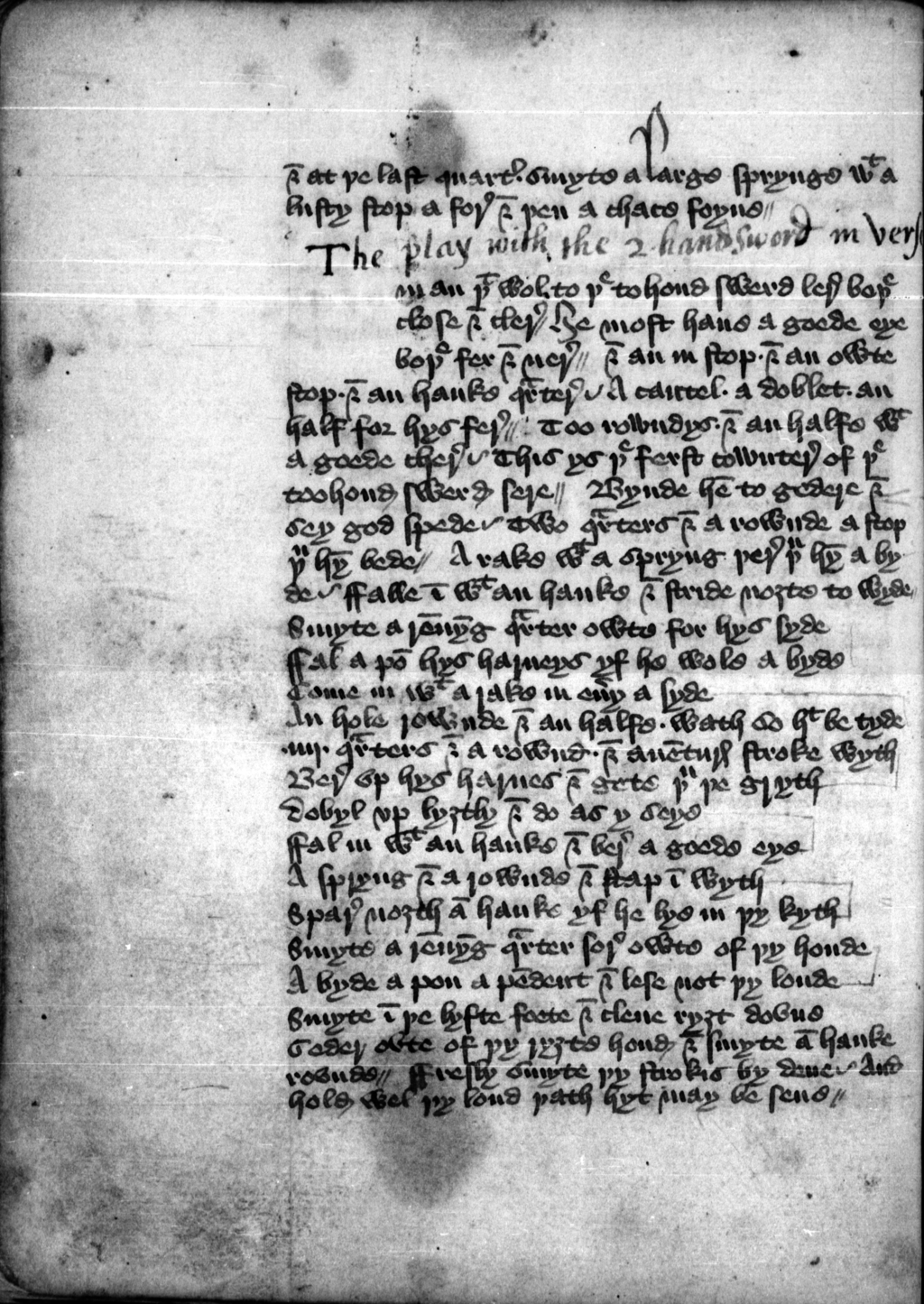& at ye last quartr smyte a large sprynge wt a lusty stop a fore & then a chace foyne.
The play with the 2-hand sword in verse
man þt wol to þe tohond swerd lern boþe close & cler/
he most have a goede eye boþe fer & ner//
& an in stop • & an owte stop • & an hauke qūrter ∪
A cantel • a doblet . an half for hys fer//
Too rowndys • & an halfe wt a goode chere
This ys þe ferste cownter of þe toohond swerd sere//
Bynde hē to gedere & say god spede ✔
two q˜rters & a rownde a stap þu hŷ bede//
a rake wt a spryng þer þu hŷ a by de ~
ffalle ī wt an hauke & stride noʒte to wyde/
Smyte a rēny̆g qūrter owte for hys syde
Fal a pon hys harneys yf he wole a byde
com in wt a rake in euey a syde
An hole rownde & an halfe • Wath so ht be tyde
• iiij • qūrters & a rownd • & auēturs stroke wyth
Bere up hys harnes & gete þu þe gryth
dobyl vp lyʒthy & do as y seye
ffal in wt an hauke & bere a goede eye
A spryng & a rownde & stap ī wyth
spar noʒth ā hauke yf he lye in þy kyth
smyte a rēny̆g qūrter sore owte of þy honde
A byde a pon a pēdent & lese not þy londe
Smyte ī þe lyfte foete & cleue ryʒt doune
Geder oute of þy ryʒte hond & smyte ā hauke rounde//
ffresly smyte þy strokis by dene ~
and hold wel þy lond þath hyt may be sene

